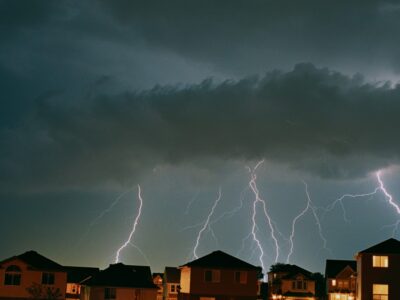When it comes to power outages caused by extreme weather, it isn’t a matter of if — it’s a matter of when. Seasonal storms test the limits of our out-of-date power infrastructure, which inevitably results in widespread power outages. From brutal snowstorms to tornadoes and floods, Michigan has seen its share of extremes.
Electricity not only powers the conveniences of our home, but it also keeps important medical equipment running and prevents temperatures indoors from reaching uncomfortable or dangerous levels. Start preparing for the ways an outage might affect your home or business well before the announcement of an official weather warning.
1. Perform Regular Maintenance
Without a functional generator, you and your family could be caught in a real bind in the event of an outage. A quality generator can be a lifesaver, and well-made generators can last decades with regular and thorough upkeep. Generators accumulate dust and grease, and parts eventually need to be replaced. Take a few steps to make sure your generator is clean and functional. Before starting it up to test the battery, take a moment to tighten any loose parts yourself and scan for any signs of obvious damage.
Check the oil and air filters to see if they need to be replaced as well. While it’s running, look around for any oil or fuel leaks, and make sure all seals and joints are tight. Periodically, be sure to check for any warnings or alarms, and examine the wiring to look for any places in need of repair. It’s a good idea to have replacement parts on hand, too, such as spark plugs, gaskets, and filter cartridges. A generator’s protective housing deserves a checkup to ensure proper protection from any elements the weather may bring.
2. Check Your Fluids
When weather strikes, keep vital supplies on hand. Don’t ignore your generator’s needs when preparing your family’s disaster plan. In the event you lose power, having a fully powered generator is crucial to keep the thermostat up, prevent food spoilage, and charge any important devices in case you need to keep in contact with loved ones. Ensuring you have what it takes to get your generator running can keep an inconvenient situation from becoming a dangerous one.
If you have stocked up on fuel in the last six months, be sure to check on it. When properly stored, gasoline lasts about three to six months in a tightly sealed container before oxidation and evaporation begin. Become acquainted with how much fuel your generator tank requires. Take time to check its coolant levels, replacing or refilling if needed.
3. Consult a Professional
It’s a good idea to have a specialist inspect your generator, especially if you suspect any damage or parts that need replacing. A trained technician can inspect and diagnose any potential issues long before they become an issue. While performing your own maintenance is key, a periodic professional inspection is needed to preserve the mechanisms of your generator.
Trained technicians will be able to check exhaust systems, fuses, electrical connections, fuel lines, and perform a simulated power outage to make sure the generator is operating smoothly. If filters, electrical parts, fuel, or spark plugs need replacing, these replacements can be done by a technician trained to do it properly and safely. Additionally, a trained specialist can thoroughly clean your generator from the inside out from terminals to enclosures.
If you are in need of generator maintenance or want to take steps to get a standby generator installed, contact us at Oak Electric to speak to one of our agents. We can install your generator in no time, so you and your family can stay safe and healthy during any weather-caused power outage disasters.


















